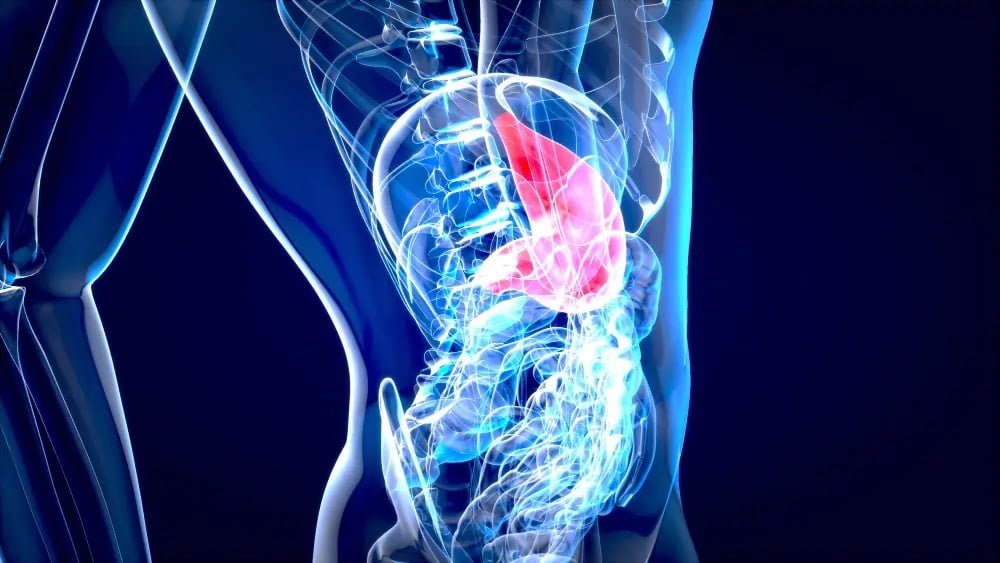
Introduction
As we age, our bodies undergo various changes, making us more susceptible to certain health conditions. Diabetes in the elderly affects a significant number of individuals. Diabetes is a chronic metabolic disorder characterized by high blood sugar levels due to either insufficient insulin production or ineffective use of insulin by the body. It can have severe consequences on overall health and quality of life.
Understanding the significance of diabetes prevention in the elderly is crucial to promoting their well-being and minimizing the risk of complications associated with this condition. By implementing preventive measures, we can empower elderly individuals to lead healthier lives and maintain their independence for longer.
In this article, we will explore five effective ways to prevent diabetes in elderly people. These strategies aim to address the specific needs and challenges faced by the elderly population, helping them reduce the risk of developing diabetes and its associated complications. By following these preventive measures, elderly individuals can take charge of their health and enjoy a higher quality of life.
So, let’s delve into these five essential strategies that can make a significant difference in preventing diabetes among the elderly.
Understanding Diabetes in the Elderly Individuals
Diabetes is a chronic metabolic disorder that affects millions of people worldwide. It occurs when the body is unable to produce or use insulin effectively, leading to high blood sugar levels. In elderly individuals, diabetes can have severe consequences on health and quality of life.
As we age, several factors can increase the risk of developing diabetes. Age-related changes in the body’s ability to produce and use insulin, coupled with a sedentary lifestyle and poor dietary habits, can significantly increase the likelihood of developing diabetes.
The impact of diabetes on elderly health can be significant. It can lead to a range of complications, such as cardiovascular disease, nerve damage, kidney damage, and vision problems. These complications can affect the ability of elderly individuals to perform daily activities, reducing their independence and quality of life.
Therefore, it is crucial to understand the impact of diabetes on elderly health and take preventive measures to minimize the risk of developing this condition. By adopting a healthy lifestyle, including regular exercise and a balanced diet, elderly individuals can reduce the risk of developing diabetes and its associated complications.
Importance of Preventing Diabetes in Elderly
Prevention is always better than cure, and this holds especially true for elderly individuals. Aging can increase the susceptibility of the body to several chronic health conditions, including diabetes. Therefore, taking preventive measures is crucial to maintain the well-being of elderly individuals.
Preventive measures in elderly care can have a significant impact on overall health and quality of life. By adopting healthy lifestyle habits, such as regular exercise, a balanced diet, and stress management, elderly individuals can reduce the risk of developing diabetes and other chronic conditions. These measures can also help manage existing conditions, preventing further complications and improving overall health.
The benefits of diabetes prevention for older adults are numerous. By preventing diabetes, elderly individuals can reduce the risk of developing associated complications, such as cardiovascular disease, nerve damage, kidney damage, and vision problems. Moreover, diabetes prevention can also improve overall health, enhance immunity, and reduce the risk of infections and other diseases.
In addition to physical benefits, diabetes prevention can also have a positive impact on mental health. By adopting healthy lifestyle habits, elderly individuals can reduce stress levels, improve mood, and boost cognitive function, promoting overall well-being.
Lifestyle Modification
Lifestyle modifications play a crucial role in managing diabetes, especially in the elderly population. By making appropriate changes in dietary habits, prioritizing physical activity, and managing weight effectively, elderly individuals can better control their diabetes and improve overall health.
Diet Plan: Crafting a diabetes-friendly diet plan for elderly individuals is a must. This involves choosing foods that are low in sugar, saturated fats, and sodium while focusing on whole grains, lean proteins, fruits, and vegetables. Portion control and regular meal timings are also important factors to consider. Consulting with a registered dietitian can be beneficial in creating a personalized meal plan that meets the specific nutritional needs of elderly individuals with diabetes.
Exercise: Physical activity is another crucial aspect of diabetes management for the elderly. Engaging in regular exercise helps improve insulin sensitivity, maintain a healthy weight, and enhance cardiovascular health. It is important to choose exercises that are suitable for the individual’s fitness level and consider any existing health conditions or mobility limitations. Options such as walking, swimming, tai chi, and chair exercises can be beneficial for elderly diabetics. Consulting with a healthcare professional before starting an exercise regimen is recommended.
Weight Management: Managing weight is also important for elderly individuals with diabetes. Excess weight can exacerbate insulin resistance and increase the risk of complications. Strategies for healthy weight maintenance include portion control, choosing nutrient-dense foods, incorporating regular physical activity, and seeking support from healthcare professionals or support groups if needed.
Regular Medical Checkups

Regular medical checkups are essential for elderly individuals, as they provide an opportunity for screening and early detection of various health conditions, including diabetes. These checkups involve diagnostic tests that can help identify potential health issues before they become severe.
Screening for diabetes through diagnostic tests is an important aspect of regular medical checkups for the elderly. Tests such as fasting blood sugar levels, oral glucose tolerance tests, and glycated hemoglobin (HbA1c) measurements can help detect diabetes or prediabetes. Early detection allows for timely intervention and management, reducing the risk of complications associated with diabetes.
Routine health monitoring holds significant importance for elderly individuals. As age advances, the risk of developing chronic conditions, including diabetes, increases. Regular checkups enable healthcare professionals to monitor blood pressure, cholesterol levels, kidney function, and other vital parameters. This monitoring helps identify any changes or abnormalities that may require further investigation or treatment.
Additionally, routine health checkups offer an opportunity to discuss any concerns, symptoms, or changes in health with healthcare providers. Elderly individuals may experience subtle signs of health issues that they may overlook or attribute to the normal aging process. Through open communication during checkups, healthcare professionals can better understand the individual’s overall health status and provide appropriate guidance and interventions.
Overall, regular medical checkups play a crucial role in the well-being of elderly individuals. They facilitate early detection of conditions like diabetes, allowing for timely intervention and management. Routine health monitoring ensures that any potential health issues are identified and addressed promptly, promoting better health outcomes and enhancing the quality of life for elderly individuals.
Medication Management
Medication management is an important aspect of diabetes care for elderly individuals. Understanding medication regimens is crucial to ensure proper administration and adherence to prescribed medications.
For elderly diabetics, medication regimens often involve multiple medications to manage blood sugar levels, control blood pressure, and address other related health conditions. It is important for both the elderly individual and their caregivers to have a clear understanding of the medications, including the names, dosages, and timings.
Proper comprehension of the role of medications in diabetes prevention is also essential. While medications can help manage diabetes, it is important to note that they are not a substitute for a healthy lifestyle. Medications complement lifestyle modifications, such as following a diabetes-friendly diet, engaging in physical activity, and maintaining a healthy weight.
Medications prescribed for diabetes prevention or management work in various ways. Some medications help the body use insulin more effectively, while others stimulate insulin production or reduce glucose production in the liver. It is important to follow the prescribed dosage and timing instructions provided by healthcare professionals. Additionally, it is crucial to be aware of potential side effects and report them to the healthcare provider promptly.
Regular communication with healthcare professionals is key to effective medication management. They can provide guidance on proper medication administration, potential drug interactions, and adjustments to the regimen based on the individual’s response and changing health needs.
Stress Management

Stress can be a significant risk factor for diabetes, especially in the elderly population. Chronic stress can contribute to unhealthy lifestyle choices, such as poor dietary habits, lack of physical activity, and inadequate sleep, which can increase the risk of developing diabetes or exacerbating existing diabetes.
Caregivers can play a vital role in helping elderly individuals manage stress effectively. Here are some relaxation techniques and coping strategies that can be beneficial for stress reduction:
1. Deep Breathing: Encourage deep breathing exercises as a simple yet effective way to reduce stress. Inhaling deeply through the nose and exhaling slowly through the mouth can help activate the body’s relaxation response.
2. Mindfulness and Meditation: Introduce mindfulness and meditation practices to the elderly individual. These techniques promote present-moment awareness and can help reduce stress and anxiety. Guided meditation apps or classes can be helpful resources.
3. Physical Activity: Encourage regular physical activity tailored to the elderly individual’s abilities. Exercise releases endorphins, which are natural mood boosters and stress reducers. Activities like walking, tai chi, or gentle stretching can be beneficial.
4. Social Support: Foster a supportive environment by encouraging social interaction and maintaining meaningful connections with loved ones. Engaging in activities with friends, family, or support groups can provide emotional support and help alleviate stress.
5. Relaxation Techniques: Explore relaxation techniques such as progressive muscle relaxation, visualization, or listening to calming music. These techniques can promote relaxation, reduce muscle tension, and relieve stress.
6. Healthy Lifestyle: Emphasize the importance of a healthy lifestyle, including a balanced diet, regular sleep routine, and stress management techniques. Encourage the elderly individual to prioritize self-care and engage in activities they enjoy.
7. Time Management: Help elderly individual organize their daily activities and prioritize tasks to reduce feelings of overwhelm and stress. Breaking tasks into smaller, manageable steps can provide a sense of accomplishment and reduce stress levels.
8. Seek Professional Help: If stress levels are persistent or overwhelming, encourage the individual to seek professional help. A healthcare provider or mental health professional can provide additional support and guidance.
Sleep and Health
Sleep patterns significantly influence the risk of developing diabetes, especially among the elderly. Insufficient sleep duration and poor sleep quality are associated with increased diabetes risk. Inadequate sleep can lead to insulin resistance, disrupted glucose metabolism, and hormonal imbalances. Sleep disorders like sleep apnea and insomnia further exacerbate this risk.
To prevent diabetes in older adults, caregivers should establish healthy sleep routines:
1. Maintain a consistent sleep schedule, including weekends.
2. Create a relaxing sleep environment with minimal distractions.
3. Encourage bedtime rituals, such as reading or relaxation techniques.
4. Limit stimulants like caffeine and nicotine before bedtime.
5. Encourage regular daytime physical activity, avoiding vigorous exercise close to bedtime.
6. Monitor medications for potential sleep disturbances.
7. Address any sleep disorders promptly by seeking medical evaluation and appropriate treatment. By prioritizing restful sleep, caregivers can help reduce the risk of diabetes and promote overall well-being in the elderly.
Conclusion
In this comprehensive guide, we’ve delved into essential strategies to prevent diabetes in elderly individuals, encompassing lifestyle modifications, medical care, social support, holistic approaches, and more. By prioritizing proactive measures and adopting a multifaceted approach, elderly individuals can safeguard their health and well-being as they age.
FAQs
1. How significant is diabetes prevention in the elderly population?
Diabetes prevention is highly significant in the elderly population due to the increased vulnerability to the condition and its potential complications. Older adults are more prone to developing diabetes due to age-related factors such as decreased insulin sensitivity and metabolic changes. Preventing diabetes through lifestyle modifications, proper nutrition, and regular physical activity can significantly improve the overall health and quality of life for elderly individuals.
2. What role does social support play in preventing diabetes among older adults?
Social support plays a crucial role in preventing diabetes among older adults. It provides encouragement, motivation, and accountability, making it easier for individuals to adopt and maintain healthy behaviors. Support from family, friends, healthcare professionals, and community groups can help seniors stay motivated, manage stress, make healthier choices, and adhere to diabetes prevention strategies.
3. Are there specific dietary considerations for elderly individuals to prevent diabetes?
Yes, there are specific dietary considerations for elderly individuals to prevent diabetes. A balanced diet rich in whole grains, lean proteins, fruits, vegetables, and healthy fats is recommended. Portion control, limiting added sugars and refined carbohydrates, and avoiding processed foods are essential. Older adults should also stay hydrated and consult with healthcare professionals or registered dietitians to create a personalized meal plan based on their specific needs and health conditions.
4. How can technology aid in monitoring and managing diabetes in the elderly?
Technology can play a significant role in monitoring and managing diabetes in the elderly. Devices like glucose meters, continuous glucose monitors, and insulin pumps help monitor blood sugar levels accurately. Mobile apps and wearable devices can track physical activity, provide reminders for medication, offer personalized dietary recommendations, and facilitate communication with healthcare providers. Telemedicine and remote monitoring enable regular check-ins and adjustments to treatment plans, ensuring better diabetes management for elderly individuals.
5. What are some key lifestyle modifications elderly individuals can adopt for diabetes prevention?
Elderly individuals can make several lifestyle modifications to prevent diabetes. Regular physical activity, such as walking, swimming, or tai chi, helps improve insulin sensitivity and overall health. Maintaining a healthy weight through portion control and balanced eating habits is crucial. Managing stress, getting enough sleep, and avoiding tobacco and excessive alcohol consumption also contribute to diabetes prevention. Regular check-ups, medication adherence, and staying informed about diabetes management strategies are essential for maintaining optimal health in the elderly population.



 Afrikaans
Afrikaans Albanian
Albanian Amharic
Amharic Arabic
Arabic Armenian
Armenian Azerbaijani
Azerbaijani Basque
Basque Belarusian
Belarusian Bengali
Bengali Bosnian
Bosnian Bulgarian
Bulgarian Catalan
Catalan Cebuano
Cebuano Chichewa
Chichewa Chinese (Simplified)
Chinese (Simplified) Chinese (Traditional)
Chinese (Traditional) Corsican
Corsican Croatian
Croatian Czech
Czech Danish
Danish Dutch
Dutch English
English Esperanto
Esperanto Estonian
Estonian Filipino
Filipino Finnish
Finnish French
French Frisian
Frisian Galician
Galician Georgian
Georgian German
German Greek
Greek Gujarati
Gujarati Haitian Creole
Haitian Creole Hausa
Hausa Hawaiian
Hawaiian Hebrew
Hebrew Hindi
Hindi Hmong
Hmong Hungarian
Hungarian Icelandic
Icelandic Igbo
Igbo Indonesian
Indonesian Irish
Irish Italian
Italian Japanese
Japanese Javanese
Javanese Kannada
Kannada Kazakh
Kazakh Khmer
Khmer Korean
Korean Kurdish (Kurmanji)
Kurdish (Kurmanji) Kyrgyz
Kyrgyz Lao
Lao Latin
Latin Latvian
Latvian Lithuanian
Lithuanian Luxembourgish
Luxembourgish Macedonian
Macedonian Malagasy
Malagasy Malay
Malay Malayalam
Malayalam Maltese
Maltese Maori
Maori Marathi
Marathi Mongolian
Mongolian Myanmar (Burmese)
Myanmar (Burmese) Nepali
Nepali Norwegian
Norwegian Pashto
Pashto Persian
Persian Polish
Polish Portuguese
Portuguese Punjabi
Punjabi Romanian
Romanian Russian
Russian Samoan
Samoan Scottish Gaelic
Scottish Gaelic Serbian
Serbian Sesotho
Sesotho Shona
Shona Sindhi
Sindhi Sinhala
Sinhala Slovak
Slovak Slovenian
Slovenian Somali
Somali Spanish
Spanish Sundanese
Sundanese Swahili
Swahili Swedish
Swedish Tajik
Tajik Tamil
Tamil Telugu
Telugu Thai
Thai Turkish
Turkish Ukrainian
Ukrainian Urdu
Urdu Uzbek
Uzbek Vietnamese
Vietnamese Welsh
Welsh Xhosa
Xhosa Yiddish
Yiddish Yoruba
Yoruba Zulu
Zulu